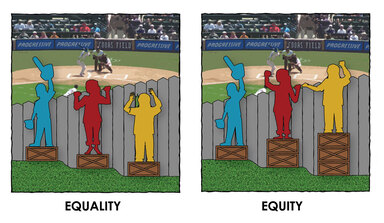We encourage you to read the following material to participate fully in the discussion with Dr. Hakeem Leonard on Sept 5th @1:30 EST

Read the article: "A problematic conflation of justice and equality: The case for equity in music therapy" by Dr. Hakeem Leonard, Associate Professor of Music Therapy and Conservatory Social Justice Liaison at Shenandoah Conservatory and University.
Please use the discussion questions below to guide your reading; we are also encouraging participants to prepare their own questions for an open Q&A following Dr. Leonard's initial break down of the article!
*If you do not have an AMTA membership and therefore no access to this article, email [email protected] and request an access link*
Please use the discussion questions below to guide your reading; we are also encouraging participants to prepare their own questions for an open Q&A following Dr. Leonard's initial break down of the article!
*If you do not have an AMTA membership and therefore no access to this article, email [email protected] and request an access link*
- 1. While a basic principle in this conversation, what does equity versus equality mean to you?
- In what ways is the field of music therapy currently creating spaces of “equality” but missing the social justice drive of equity?
- This concept of the double-bind Black individuals wrestle with daily was beautifully illustrated first in the illustration of Black artists and the cycle of minstrelsy, then broadened to the individual experience in the W.E.B. quote “one feels his twoness.” How can and in what context should this feeling of twoness be addressed by a music therapist who is white or of another different background?
- How can MTS’s be trained in this means of cross-cultural/multicultural counseling?
- In light of American music owing its novelty to Black artists’ ingenuity and resilience, how can music provide a best space for this conversation to take place?
- What are some starting points to best “un-suture” ourselves from positions of complacency in racism as stated in the article?
- How can we distinguish our failings into a nonracist posture instead of our goal for antiracist action in the communities we participate in?
- Wherein must this self-interrogation begin and who can we depend on to check our bias? (should not be a task that falls on friends that are BIPOC!)
- How do you envision “centering on the margins” in the education of music therapists?
- As far as representation (students and faculty), accessibility (cost and membership, auditions), curriculum (counseling, repertoire) or otherwise?
Proudly powered by Weebly